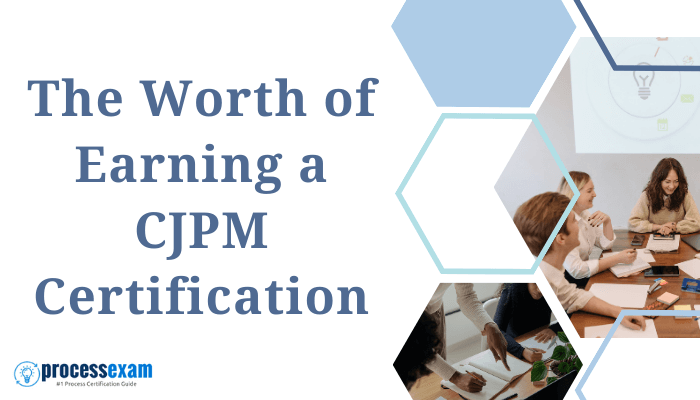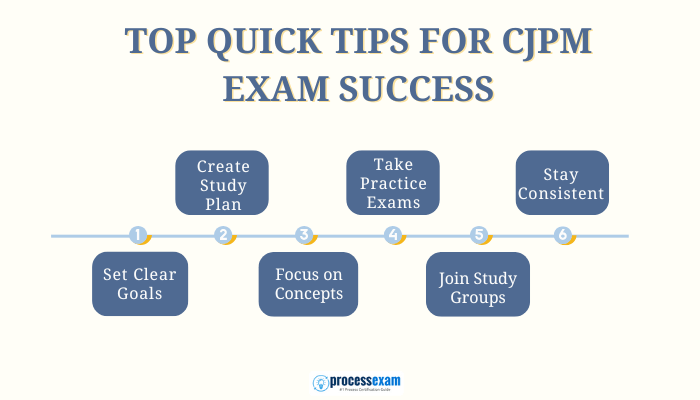
The world of project management is ever-evolving, and as businesses seek efficient leaders to oversee operations, certifications have become a beacon of credibility and competence. The IAPM Certified Junior Project Manager (CJPM) certification is designed for individuals at the start of their project management careers. But is it worth investing your time and effort in earning the CJPM certification? In this article, we will explore the CJPM certification’s value, who it’s designed for, and whether it’s the right choice for your career goals.
Why Project Management Skills Are Critical Today?
As industries grow more complex, companies are leaning on project management professionals to steer their projects in the right direction. From IT to construction, project managers are essential for aligning projects with business goals, mitigating risks, and ensuring timely delivery. However, entering this field without certification can be challenging, as employers increasingly favor certified professionals.
Project management certifications such as the CJPM demonstrate your understanding of the fundamental principles and methodologies required to manage small to medium-scale projects effectively. As the demand for junior-level project managers grows, the CJPM certification can serve as a stepping stone to advanced roles in the field.
CJPM Certification: What Is It About?
The Certified Junior Project Manager (CJPM) certification is offered by the International Association of Project Managers (IAPM). It is specifically designed for individuals who are beginning their project management journey and need a foundational understanding of the project lifecycle, stakeholder management, and team coordination.
The CJPM certification is ideal for those looking to gain basic project management knowledge without committing to more advanced certifications like PMP (Project Management Professional) or PRINCE2. Let’s dive deeper into the specifics of this certification and what it offers to aspiring project managers.
CJPM Certification Exam Details:
-
Exam Name: Certified Junior Project Manager (CJPM)
-
Offered by: IAPM
-
Duration: 35 minutes
-
Number of Questions: 40 multiple-choice questions
-
Passing Score: 65%
-
Fee: USD $103
CJPM Certification Process: What You Need to Know
Getting CJPM certified is a straightforward process compared to other certifications that require extensive preparation. The IAPM focuses on making certifications accessible to a global audience, allowing you to take the exam from the comfort of your home.
-
Familiarize Yourself with the Syllabus: The CJPM exam covers key project management topics, such as:
-
Project environment and stakeholders
-
Project charter creation
-
Work breakdown structure development
-
Specification and phase model creation
-
Managing project files
-
-
Enroll for the Exam: Register on the IAPM website, pay the exam fee, and choose your preferred exam date.
-
Prepare for the Exam: The IAPM offers a comprehensive syllabus, and you can find valuable resources, such as CJPM practice tests and sample questions on ProcessExam.com, to help you get ready for the exam.
-
Take the Exam: Once you feel confident, you can take the online CJPM exam. The flexible format allows you to take the test at any time that fits your schedule.
The certification process emphasizes not only theoretical knowledge but also practical applications of project management principles. Candidates are encouraged to apply what they learn to real-world scenarios, even if they are working on smaller projects in their organizations.
CJPM Certification Challenges: What to Expect
While the exam itself isn’t as rigorous as other advanced project management certifications, there are a few challenges to keep in mind:
Time Management:
The exam consists of 40 questions in just 35 minutes, leaving little room for hesitation. You must be quick in answering each question, as managing time during the exam is key. For some, the pressure of the time limit can lead to rushed answers and overlooked details, potentially lowering their score. To prepare for this, taking timed practice tests is highly recommended. It familiarizes candidates with the pace they need to maintain and helps reduce anxiety during the actual exam.
Conceptual Clarity:
While the exam focuses on fundamental topics, having a strong understanding of project management principles, stakeholder dynamics, and the role of documentation is crucial. Relying only on memorization might not be enough - ensure you grasp the underlying concepts.
To overcome this, it is crucial to invest time in thoroughly studying the recommended materials provided by IAPM. The IAPM Project Management Guide 2.0 serves as an essential resource, but it may not be enough for some candidates. Supplementing this guide with online tutorials, webinars, and professional training courses can help build a more robust understanding of the required knowledge.
Lack of Practical Experience:
The final challenge is not just passing the exam but having the confidence to apply the certification in real-world settings. After obtaining the CJPM certification, individuals may still feel unsure about their abilities to manage projects, particularly if they lack hands-on experience. This can be alleviated by seeking opportunities to work on smaller projects or by shadowing more experienced project managers in their organization. Building this confidence will help candidates fully realize the value of their CJPM certification in the workplace.
Balancing Study with Professional Commitments:
For many candidates, balancing preparation for the CJPM exam with work or other personal responsibilities is another significant hurdle. Although the exam is relatively short, adequate preparation requires dedicated time and focus, especially for those without formal project management experience. Joining study groups or online communities can also help candidates share knowledge and experiences while preparing for the exam.

Is CJPM Certification Worth the Investment?
Determining whether the CJPM certification is worth the investment requires evaluating both the cost and the benefits it provides to candidates. At just $103, the certification fee is considerably lower than that of many other project management certifications. However, the value of this certification goes beyond just its affordability - it’s about what the credential can bring to your career in terms of opportunities, knowledge, and professional credibility.
Career Advancement Opportunities:
The CJPM certification is ideal for individuals who are early in their project management careers or those who are considering transitioning into the field. For entry-level professionals, holding a CJPM certification can demonstrate foundational project management knowledge and a commitment to professional growth. While it may not carry the same weight as more advanced certifications like PMP, it is a strong starting point for those looking to establish themselves in project management.
This certification can lead to entry-level positions like junior project manager or project coordinator roles, particularly in organizations that prioritize a formal understanding of project management principles over extensive experience.
Practical Knowledge and Skill Development:
One of the key benefits of pursuing the CJPM certification is the knowledge and skills gained throughout the preparation process. Candidates learn about important project management concepts, including project phases, stakeholder management, and work breakdown structures, which can be applied to real-world scenarios. Even if a candidate does not immediately move into a project management role, this knowledge can enhance their ability to contribute to project teams and improve overall job performance in various roles.
Global Recognition and Flexibility:
IAPM certifications, including the CJPM, are recognized globally, which adds to their value. The certification is not region-specific, allowing professionals to use their credentials across various industries and geographical locations. Additionally, the CJPM certification is particularly appealing because of the flexibility it offers. The exam is online, so candidates can take it from anywhere at any time, making it accessible to a wide range of professionals with different schedules and commitments.
Return on Investment (ROI):
When considering the ROI of the CJPM certification, it's important to look at the long-term potential. For those just starting their careers, this certification provides a solid foundation for further education and certifications, such as the CAPM or PMP. The relatively low cost of the certification, combined with its ability to enhance a resume and open doors to new career opportunities, makes it a worthwhile investment for those serious about project management.
Future of CJPM Certification: Is It Sustainable?
As the project management landscape continues to evolve, so do the certifications and credentials that define professional standards. The future of the CJPM certification depends on several factors, including industry demand, the evolution of project management practices, and the adaptability of the certification itself.
Industry Demand and Trends:
In recent years, the demand for project managers has continued to rise across various industries, including IT, construction, healthcare, and finance. As organizations undertake increasingly complex projects, the need for skilled professionals who can manage these initiatives is crucial. Entry-level certifications like CJPM will likely remain relevant as companies look to cultivate talent from within, offering training and certifications to junior employees as they progress through their careers.
Moreover, as the gig economy expands and freelance work becomes more common, project management skills are being sought by freelancers and contractors. For these individuals, certifications like CJPM can enhance their professional profiles and make them more competitive in the marketplace.
Adapting to Agile and Hybrid Methodologies:
One potential challenge to the sustainability of the CJPM certification is the ongoing shift towards agile and hybrid project management methodologies. The CJPM certification focuses on traditional project management principles but needs to evolve to address the growing emphasis on agile frameworks, which are increasingly popular in IT and software development projects. If IAPM continues to update its curriculum and exam content to reflect these trends, the CJPM certification can maintain its relevance in the changing project management landscape.
Integration with Advanced Certifications:
Another factor influencing the future of the CJPM certification is how well it integrates with other project management credentials. For example, professionals who obtain the CJPM may later pursue more advanced certifications such as CAPM or PMP from the Project Management Institute (PMI). As long as the CJPM serves as a stepping stone to higher-level certifications, its sustainability will be reinforced.
Global Recognition and Accessibility:
One of the strongest points in favor of the CJPM certification’s future is its global recognition. IAPM certifications are recognized worldwide, giving them a broader appeal than some region-specific certifications. Furthermore, the online format of the CJPM exam makes it accessible to a wide audience, from students to working professionals across the globe. As remote work becomes more common, the ability to obtain certifications online without geographical constraints will become increasingly important.
The future of the CJPM certification relies on IAPM's adaptability and the evolving demands of project management. Its affordability, accessibility, and foundational value ensure it remains a sustainable choice for aspiring project managers.
Wrapping Up: Should You Get CJPM Certified?
In summary, the IAPM CJPM certification is a valuable credential for anyone starting a career in project management. It offers an affordable, accessible way to gain a solid foundation in project management principles. Whether you're fresh out of university, looking to shift careers or want to add a certification to your portfolio, CJPM can give you the necessary boost to secure junior-level project management roles.
For those looking to take their learning a step further, websites like ProcessExam offer extensive resources, including practice tests, mock exams, and preparation guides to help you succeed.
FAQs About CJPM Certification
Is the IAPM CJPM Certification Recognized Worldwide?
-
Yes, IAPM certifications, including the CJPM, are globally recognized, making them a valuable asset for international job seekers.
What Does the CJPM Exam Consist Of?
-
The CJPM exam features 40 multiple-choice questions and lasts 35 minutes.
What Score Do You Need to Pass the CJPM Exam?
-
You need a minimum score of 65% to pass the CJPM exam.
What is the Cost of CJPM Certification?
-
The IAPM CJPM certification costs $103, making it one of the most affordable project management certifications available.
How Can I Prepare for the CJPM Exam?
-
You can prepare by studying the CJPM syllabus and taking practice tests available on websites like ProcessExam.
